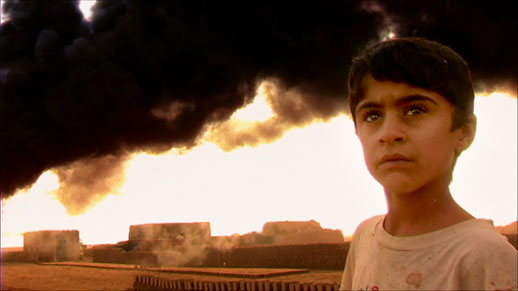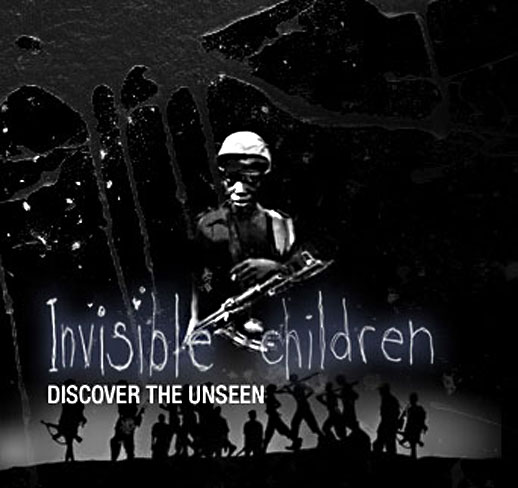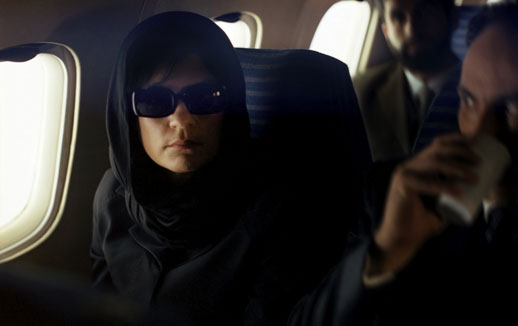Bringing Awareness of Refugee Issues to Tokyo

Can you tell us what the UNHCR and the Refugee Film Festival are about?
There are currently 33 million refugees and internally displaced persons around the world, and it is the mission of UNHCR to protect the basic human rights of these uprooted people. Using the 1951 Geneva Refugee Convention as our primary tool, we work with governments and NGOs to ensure that refugees receive adequate food, shelter, and medical care in the immediate aftermath of their displacement and that they are not returned involuntarily to a country where they will face persecution. While acting as an international watchdog over refugee issues, UNHCR also strives to raise awareness, which has become especially pertinent in this age of globalization where people in growing numbers are migrating, be it voluntarily or involuntarily.
A lot of people understand what it means to move to a new country—learning a new language, eating a different kind of cuisine—but not very many among us are aware of what it is like to be forced to migrate, as a result of war, persecution, or climate change. The Refugee Film Festival, organized by UNHCR and Japan for UNHCR, was held in Tokyo for the first time last year with the aim of informing the public and inspiring the public’s involvement in making a difference.
The Refugee Film Festival this year showcases 31 films at 4 different venues: L’Institut Franco-Japonais de Tokyo, Goethe-Institut Japan, Istituto Italiano di Cultura di Tokyo, and the Embassy of Sweden. There are a few films in our line-up which have never before been shown in Japan, and we are very happy to be premiering them. People may expect to see only depressing documentary films, but it’s not the UNHCR’s mission to make people feel depressed, upset, or guilty, but to offer them the opportunity to get a better grasp of what’s going on in the world. The reality, whether you live in Omotesando or Roppongi, is that right now there are millions of people going through some unimaginably difficult times, and we need to know about it.

Our opening film Iraq in Fragments has received awards at various film festivals around the world, including the Best Documentary Directing award at the 2006 Sundance Film Festival. UNHCR is the first organization to bring in the film to Japan. It’ll be shown on July 18th at the Goethe-Institut.
All entry is free in the festival. Why?
Our festival is a non-commercial event, and we aim to make this event accessible to everyone and anyone, whether they are students or government officials or asylum seekers and refugees themselves.
How is the festival organized?
We have three sections. The first section includes features, documentary, animation and art films about refugees. The second section consists of films about war and peace. The third section is a collection of films made by former refugees. Not a lot of people may be aware, but some of the world’s most famous filmmakers were formerly refugees: Charles Chaplin, Alfred Hitchcock, Roman Polanski, Andrei Tarkovsky. This year we are pleased to present a retrospective tribute to the works of Rithy Panh, a renowned Cambodian-French film maker in the field of documentary film in Europe and Asia. Rithy Panh was a former refugee, who was displaced to a refugee camp called Site 2 on the Thai-Cambodian border before finding asylum in France in 1980. Organized in collaboration with L’Institut Franco-Japonais in Iidabashi, this is the biggest retrospective of this filmmaker’s work to be held in Asia, and the first of its kind in Japan.
The overall idea is to show the individual human stories, beyond what we know from statistics, the media, and politicians. We also intend to share these stories from a global perspective, illustrating what is going on in different regions in Africa, the Middle East, and the rest of the world.

Can you highlight some films for the readers?
It’s hard to just highlight certain films, given the diversity of issues, countries, and film genres that characterizes our film line-up. Invisible Children, for example, is a film made by 3 Californian college students who went on a journey to Uganda to discover Africa and its stories. In Uganda there are a lot of children who were abducted by the Lord’s of Resistance Army. This film is very amateur but the story is incredible in the way they follow the children hiding from the LRA in basements of buildings, in hospitals and schools. The kids were touched by having found someone who cared about them and that changed them. These film makers went back to the States and started a campaign, screening this film all around the world, and thereby raising awareness of the problems faced by Ugandan children.
Unveiled is a German film that recounts a very interesting story from the perspective of an Iranian refugee: an Iranian woman flees the country because of her sexual orientation, as governments in many countries in the Middle East and Asia persecute homosexuals. The character in the film ends up in Germany, but her request for asylum is denied, leading her to assume the false identity of man.
We will also be showing a very interesting Swedish film about the December 2004 Tsunami, which took so many lives all across the countries bordering the Indian Ocean. A lot of people forget that refugees are not just fleeing war or persecution, but have also been displaced by natural disasters.

Whose support do you have in Tokyo?
Tokyo Art Beat readers may be interested to know that one of the films we are showing is Letters Home, produced by Jo Elliott, daughter of David Elliott, the former director of Mori Art Museum. David Elliot was very supportive of the festival last year. We have support from different people in town: art foundations such as Johnnie Walker’s Artist Residency Tokyo have been very supportive. We are also very lucky to have support from different film distributors in Japan, such as Sony Pictures, Avex Entertainment, Moviola, and several others.
How would you and the UNHCR like to support these film makers and people in the arts?
We support filmmakers simply by showing their work. All filmmakers are passionate about their films and we are passionate about refugees, so we can collaborate.
As director of this film festival, I partner up with filmmakers and distributors around the world. Our festival is a part of the Human Rights Film Network, which is a global alliance of Human Rights Film Festivals, including the Human Rights Watch Festival in New York, the Amnesty Film Festival in London, the Wan Film Festival in Prague and several film festivals in South America. We are the only Japan-based member within this network.
Although it might seem to some people that the United Nations is a bureaucratic organization, our festival is contributing to the process of reformation that the UN is going through right now. We should have more events of this kind that use the arts to promote issues. As they say, “a picture is worth a thousand words.”
What is your motivation for being involved in this project?
My motivations are simple: I have been working in Africa and Asia for the last 10 years. I come from the former Soviet Union, and I feel privileged to have seen different parts of the world and see for myself what is working and what is not. When I moved to Africa, and later to Asia, I was able to meet a lot of refugees, and I think this has led me to do what I do right now and continues to inspire me.
Getting to know refugees on a more personal level is one of the founding ideas of the festival. We tend to put people in different sections of our minds and our lives – we categorize people as different from ourselves and consequently create a sense of distance between us. But in reality how different are we? I think the stories shown at our festival are really good testimonies to the fact that we are not at all different.
What makes you interested in working in Asia over anywhere else?
London has the great Amnesty Film Festival, Paris has the Avion Cinema Festival, New York has the Human Rights Watch Film Festival as well as many others. Every major city in the world, on its way to becoming a global village, has one. Tokyo wants to have that status and Japan is a world power economically, so it can work. The ultimate goal of the festival is to be annually based here in Tokyo and to share our program with different festivals in different cities in Asia and in other parts of the world.
How do you see the position of refugees in a globalizing world?
Cultures are inevitably mixing through globalization, which has both positive and negative consequences. Hopefully it will lead to more tolerance and understanding and we’ll continue to treasure our own cultures while respecting others. The concept of being a refugee is nothing new: it has been happening for thousands of years. However, in this modern context, unfortunately with the way things are right now, there are proportionally more refugees than before.
And what about Japan’s position with regard to that?
Japan does a lot for refugees and the world at large: it’s the third largest donor to UNHCR. However, in terms of being open to refugees, Japan could do a lot more. There seems to be a prevailing fear of foreigners and a fear of refugees. I say, come and watch our films – it will clear up some of these fears and allow for a better understanding of what it’s like to be a refugee.
How have artists been actively involved in helping refugees?
Well, we are not the first people to release a film or create art that changes people’s perspectives. Japanese artists have been involved with socially engaged arts. It makes me think of Shigeru Ban, who made an environmentally friendly paper shelter for the refugees of the Kobe Earthquake in 1995, that can be used for other refugees elsewhere. This work was just exhibited at the Museum of Contemporary Art in Los Angeles and is being exhibited again at the National Art Center in Roppongi at the moment.
What is the role of art in society, in your opinion?
Art can make things more beautiful in every possible way, aesthetically and spiritually. As a young film festival, we want to promote social art films because they carry the power to touch people and change their perspectives and opinions. That’s the role of art as we see it within our context, as organizers of the Refugee Film Festival.
Kirill, thank you vey much for your time and we hope the festival is a success.



